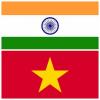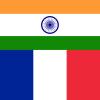India, Vietnam: Time to Expand the Strategic Partnership
In 2012, India will host two significant events. First, in the month of December, the India-ASEAN Summit will be held at New Delhi to mark the 10th anniversary of their Summit-level dialogue; and second, India and Vietnam will be celebrating 40 years of the establishment of their diplomatic relations. Both events gain salience in the broader context of the beginning of the third decade of India’s Look East Policy which has witnessed phenomenal growth over the years in bilateral and multilateral relations with the ASEAN countries.







